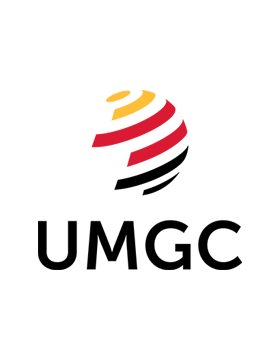How to Highlight Your Skills in Any Industry
Cybersecurity used to be something most professionals could safely leave to the IT department, but with phishing, ransomware, and data breaches becoming a fact of life at the office (and at home), basic cybersecurity awareness is a valued skill in almost any industry.
Today we’re going to talk about how you can demonstrate cybersecurity skills on your resume and cover letter, regardless of your field. Let’s begin.
Identify Your Cybersecurity Skills
Before you can add cybersecurity skills to your resume or cover letter, you’re going to need to recognize them in your own experience. Even if you’ve never touched a firewall or written a line of code, you may have completed one of these basic cybersecurity tasks:
- Company-Mandated Security Training: This might include phishing awareness or password management training.
- Handled Confidential Data: If you work in healthcare or retail, you’re probably familiar with HIPPA regulations or PCI (Payment Card Industry) compliance.
- Multi-Factor Authentication or VPNs: Both of these are used regularly in nearly every industry, so it’s likely you’re at least familiar with them.
These tasks might seem mundane, but they still count as cybersecurity skills. This is especially true when they’re framed as part of your professional responsibility to protect information.
Where to Put Cybersecurity Skills on Your Resume
When it comes to including basic cybersecurity skills on your resume, there are a few different ways to go about it. If you’ve got a dedicated skills section, you could list your cybersecurity skills by using bullet points. Check out these examples of resume bullet points that mention cybersecurity skills:
- Data privacy compliance (HIPPA)
- Phishing detection and prevention
- Secure password management
- Multi-factor authentication use
Using industry-specific terms will also help you get around those pesky Applicant Tracking Systems (ATS) that are all the rage right now.
You can also include basic cybersecurity skills in your resume’s work experience section. Let’s say you work in the healthcare industry, and you want to show off your data handling skills. Here, you might say, "Maintained compliance with HIPPA regulations by following secure data-handling protocols for 2,000+ patient files."
In another scenario, you might want to showcase your ability to detect phishing emails. Here, you might say something along the lines of, "Trained team of 12 in phishing detection, reducing security incidents by 35% over six months." Note that both examples include quantifiable examples, which are incredibly effective when used on a resume.
Most obviously, you can include cybersecurity skills in the certifications section of your resume. If you’ve completed training, whether through your employer, LinkedIn Leaning, or a professional organization, add it to your resume. For example, you might list:
- Google Cybersecurity Professional Certificate
- Company-sponsored security awareness training (2024)
Even basic or beginner courses show commitment to workplace safety and continuous learning.
How to Include Cybersecurity Skills in Your Cover Letter
Including cybersecurity skills in your cover letter takes a bit of finesse, especially when you’re not necessarily in that line of work. Let’s say you’re applying for a job in healthcare, finance, or education—these industries are often targeted by cybercriminals, so acknowledging the importance of information security will help you stand out. Check out this example of a middle paragraph of a cover letter that describes basic cybersecurity awareness:
In my current role as a project coordinator, I handle confidential client data on a daily basis, ensuring compliance with GDPR (General Data Protection Regulation) guidelines. I understand the importance of safeguarding sensitive information, especially in a field where trust and compliance are critical to success.
It’s also important to connect your cybersecurity skills to the role you’re applying for. Here is an example of how this can be done effectively:
By combining my background in customer service with my skills in secure data handling, I can help maintain your reputation for both service excellence and client privacy.
Tailoring Your Resume for Non-Tech Roles
When applying for non-tech jobs the key is to present cybersecurity as part of your professional reliability, not as a separate, unrelated specialty. Remember, your skills and experience in the field you’re already in are top priority, so think of your cybersecurity skills as the icing on the cake.
If you’re in marketing, emphasize secure handling of customer data and marketing analytics tools. For finance, highlight fraud prevention measures and secure financial transactions. Those applying for jobs in human resources might focus on the secure storage of employee records and compliance with privacy laws. As always, be on the lookout for keywords in the job description and connect them to your skills and experience.
Stay Current
Having basic cybersecurity awareness and knowledge of technology like AI will help you moving forward, as not only is virtually every industry at risk of cybercrime, but they’re all beginning to leverage emerging technologies in their day-to-day operations. If you’re going to flex your cybersecurity skills (or any tech skill) on your resume, you’ve got to stay current.
When it comes to cybersecurity, even basic practices are evolving rapidly, so make sure what you list on your resume is up to date. For instance, if you mention how you rotate your passwords regularly, use phrases like “multi-factor authentication,” as this is what’s widely accepted. Simply stating that you rotate your passwords may indicate that your knowledge is outdated.
Staying informed is as simple as joining Facebook groups and reading posts, subscribing to newsletters, or taking a short course every year or so. Try to see cybersecurity awareness as a core professional skill like communication or problem solving, and if you haven’t already, start educating yourself on basic cybersecurity practices.
This article has been republished with permission from Vault.



